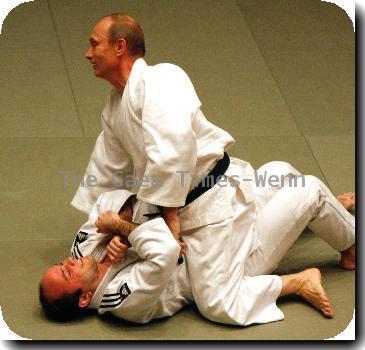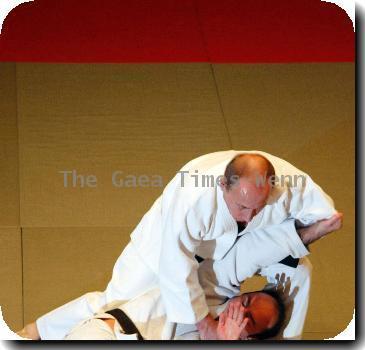Russian police detain opposition leaders for Flag Day march in Moscow
By Lynn Berry, APSunday, August 22, 2010
Russian police detain opposition leaders
MOSCOW — Police prevented about 100 opposition activists from marching through Moscow on Sunday with a giant Russian flag and detained three of their leaders, including prominent politician Boris Nemtsov.
The opposition activists were celebrating Flag Day, a holiday honoring the tricolor flag adopted by a newly democratic Russia when the Soviet Union collapsed.
Nemtsov said the decision to stop a march honoring the Russian flag showed the mentality of Prime Minister Vladimir Putin’s government.
“The flag is a symbol of freedom and democracy, only not for Putin,” Nemtsov said, speaking to The Associated Press from a city police precinct.
The date for the holiday was chosen to celebrate the defeat of a hardline communist coup on Aug. 22, 1991. Boris Yeltsin, who famously climbed onto a tank to lead the resistance against the coup plotters, turned the flag into a symbol of an independent Russia. When the Soviet Union ceased to exist on Dec. 25 of that year, the white, blue and red flag was raised over the Kremlin.
Nemtsov accused Putin, a former KGB officer, of sharing the mentality of the coup plotters, who were determined to prevent the democratization of the Soviet Union. Putin did not support the coup plotters at the time, but as president he lamented the demise of the Soviet Union and rolled back many of the democratic reforms that Yeltsin had introduced.
Nemtsov, who stood with Yeltsin in 1991, served in Russia’s government in the 1990s, including two stints as deputy prime minister.
Moscow police said Nemtsov and Mikhail Shneider were detained for trying to lead an unsanctioned march. They had permission to hold a rally but not to march through central Moscow.
“You get the impression that Nemtsov and Shneider intentionally provoked the police,” police spokesman Viktor Biryukov told Russian news agencies.
Lev Ponomaryov, another prominent opposition leader, was detained later, police said.
Opposition marches and rallies are regularly broken up by police. In some cases, officers detain dozens of participants, carrying or pushing them into waiting buses. Most are freed within a day, but some have served jail time or been fined.
Opposition activists won the support of some of Russia’s best-known rock musicians to play at a protest rally in central Moscow on Sunday evening that drew about 3,000 people. The rally was part of a broad campaign to try to stop the destruction of a centuries-old oak forest that is soon to be cut down so a highway can be built from Moscow to St. Petersburg.
City authorities gave permission for the rally to be held, but said no sound equipment could be used, only megaphones.
Yury Shevchuk, a rock star who attracted wider fame after a televised confrontation with Putin, sang some of his best-loved songs while accompanying himself on an acoustic guitar. The crowd joined in, helping the music carry across Pushkin Square. Even some of the hundreds of police officers hummed along.
In his exchange with Putin in May, Shevchuk challenged him to allow Russians to hold anti-government protests.
_____
Associated Press writer Alexander Zemlianichenko contributed to this report.
Tags: Arts And Entertainment, Eastern Europe, Europe, Moscow, Municipal Governments, Music, Protests And Demonstrations, Russia, Vladimir Putin

